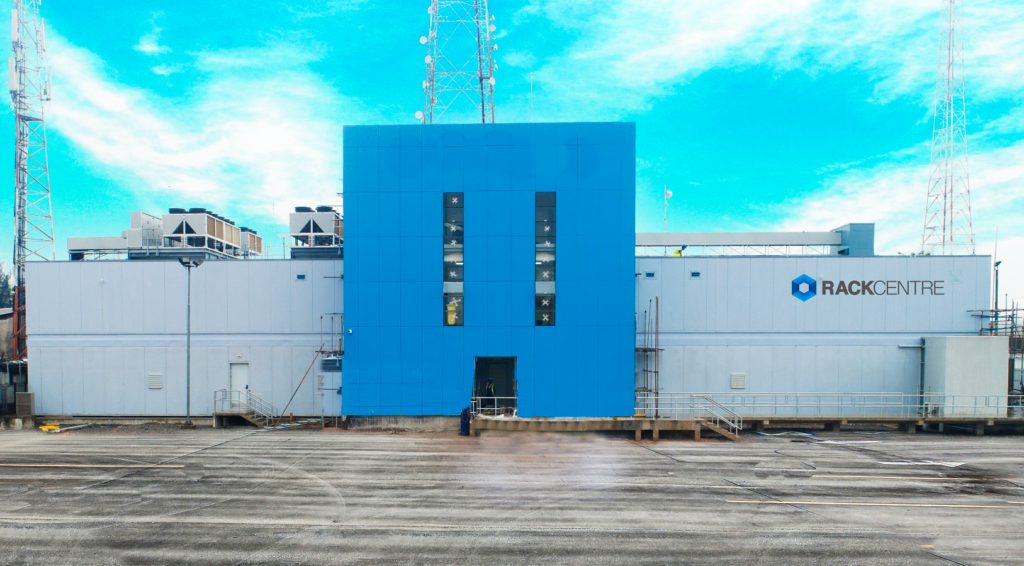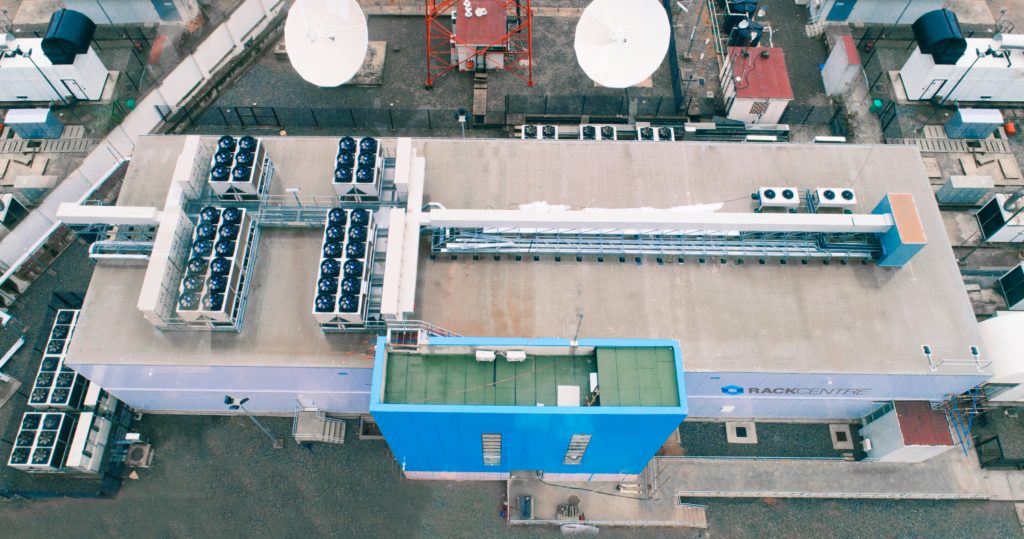
Data centres are critical infrastructure for modern businesses and governments, providing secure and reliable storage, processing, and management of digital data. Despite the growing demand for data centres in Nigeria, Nigeria is behind other African countries such as South Africa and Kenya in terms of the number and quality of data centres available.
A key component of thriving economies, data centres house computer servers and associated components, such as telecommunications and storage systems. These facilities are designed to provide a secure and controlled environment for IT equipment, with features such as redundant power supplies, backup generators, and cooling systems.
Growing Demand for Data Centres in Nigeria
Nigeria has seen rapid growth in its digital economy, with an increasing number of businesses and organisations relying on digital technologies to operate. This has resulted in a corresponding growth in demand for data centres to provide the necessary infrastructure to support these operations.
One of the primary drivers of demand for data centres in Nigeria is the growth of the country’s e-commerce industry. This growth is fuelled by factors such as increasing Internet penetration, rising mobile phone usage, and a growing middle class with increasing disposable income.
Another factor contributing to the growth of data centres in Nigeria is the increasing adoption of cloud computing. Cloud computing is a technology that allows businesses to store and access data and applications over the Internet rather than on local servers or personal computers. This technology is becoming increasingly popular in Nigeria, as it provides businesses with a flexible and cost-effective way to manage their IT infrastructure.
Challenges
A significant challenge facing the development of data centres in Nigeria is the country’s inadequate power infrastructure. Nigeria is known for its frequent power outages, which can cause significant damage to IT equipment and disrupt business operations. To mitigate this risk, data centres in Nigeria rely heavily on backup power generators and uninterruptible power supply (UPS) systems.
Another challenge is the slow-paced government support for the development of data centres in Nigeria. Despite these challenges, there are several companies that have established data centres in Nigeria in recent years. One of such is Rack Centre, the first carrier and cloud-neutral Tier III Constructed Facility Certified data in West Africa, providing global-standard data centre colocation services and unrestricted interconnectivity between carriers and customers.

Establishing Rack Centre
The company was founded in 2013 when Maher Jarmakani of Jagal, a diversified Nigerian conglomerate, realised the need for an independent data centre in Africa’s biggest economy. He sought to fill a gap he identified in the technology infrastructure space in Nigeria and across sub-Saharan Africa: The need for a world-class facility where businesses could reliably and securely host their data.
Jarmakani noticed that enterprises within the country had pseudo-data centres – computer rooms where they warehoused their data in-house. And typically, with that, there was no clear policy and procedure for how that infrastructure and the data were managed. This also gave rise to latency issues as companies were limited to a few connectivity providers.
“The key motivation for establishing Rack Centre was the need for a Nigerian entity to establish an in-country data centre providing connectivity and to drive collocation – a practice of housing servers, networking equipment, and other computing hardware in a third-party data centre that could provide unparalleled connectivity to users with significant network performance, cost savings, resiliency, and security benefits.
The idea was to build a carrier-neutral facility which would not be directly controlled by any telecommunications company. Basically, the creation of a facility that gave the ISPs and telco providers the comfort to enter an environment and provide connectivity without any concern about the biases of the owners.”
“We engaged all the key ISPs and network providers, granting them connectivity, cost-savings, flexibility, and improved network performance helping them see value in collocating in Rack Centre.’’
Funding, Partnerships, and Regulatory Support
Pulling off a project of such magnitude required a huge capital outlay, which Jagal funded 100%. The holding company also engaged reliable and tested equipment manufacturers that could establish a data centre with the prerequisite global specifications and standards.
Regulatory authorities have also been quite helpful in driving growth in cloud storage facilities in the country. The Central Bank of Nigeria mandates that all banks must have at least one of their data centres housed in a tier-three certified facility. Banks were given 18 months from 2015 to ensure this was done.
“Now most banks have either the primary or the secondary storage in data centre facility.’’
Rack Centre also had to work with regulatory bodies in the country to change the mindset of industry players that they needed their own storage facilities. According to Jarmakani, ‘’We started working with the Central Bank of Nigeria to make industry players understand the importance of colocation.’’
The Nigerian Information Technology Agency also mandates that businesses should host their data locally. That has also helped drive the growth of data centres in Nigeria. According to insights from TechCabal, Africa has the lowest number of data centres per internet user in the world, with South Africa, Egypt, Nigeria, and Kenya housing most of the colocation data centres on the continent. That means there is still a significant upside for the business in Nigeria as the economy continues to grow.
Capacity Expansion in sub-Saharan Africa
With milestones, including being the first data centre company in sub-Saharan Africa to be tier III certified in Nigeria and several global awards to its credit, Rack Centre is poised to grow its world-class service across sub-Saharan Africa.
Rack Centre began to diversify its service offerings portfolio and bring in additional investors to take advantage of the growing demand for storage services in the country to expand its services further.
After a detailed assessment of the players in the African market, Actis, a leading investor of private capital in global emerging markets, identified Rack Centre as a data centre with the most significant potential to grow and expand in Africa. This gave rise to a joint venture between Actis and Jagal in 2020 underpinned by the expected heightened demand for hosting capacity in independently owned data centres across the continent.
“That process started when Jagal and new investors came together and decided that we needed to build for the future and meet the demand that is growing in the country.”
Rack Centre has grown to have the biggest market share in Nigeria as the demand for cloud storage facilities increases, driving a fast expansion in the country’s digital economy, especially the e-commerce space and access to financial services. The company’s ability to attract blue-chip clientele reflects its commitment to provide world-class data centre services in Nigeria. Amazon Web Services (AWS) recently announced the opening of a new AWS Direct Connect location within the Rack Centre data centre in Lagos, Nigeria. By providing a secure, reliable, and cost-effective platform for businesses to operate and grow, Rack Centre is helping to transform the Nigerian economy and establish the country as a hub for innovation and technology.
The data centre industry is projected to grow by an average 17.9% annually from 2021 to 2027 according to 6Wresearch. The growth will be driven by the rollout of 5G technologies by the telecom firms, and the increasing expansion of the tech startup space.
Maher Jarmakani’s vision to establish a world-class data centre within the shores of Nigeria has grown on a remarkable trajectory. Rack Centre has doubled capacity almost every year since it first opened its doors for business and is now set to commence the construction of an additional 12MW IT load data centre that would make it the largest data centre facility in sub-Saharan Africa.



















